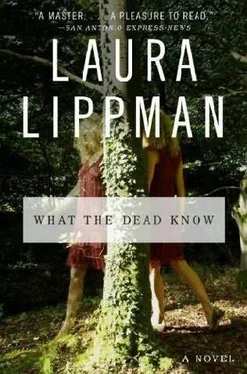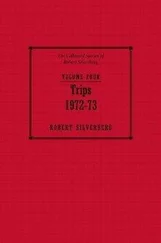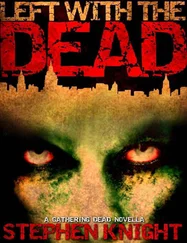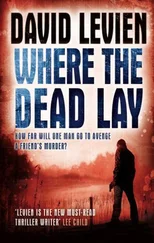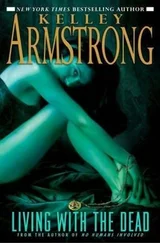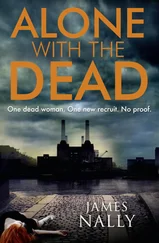“A policy that paid him a monthly sum, for up to ten years. You know when ballplayers get those big salaries? They’re underwritten by annuities. Bigger ones than this, of course. It wasn’t a lot-judging by their lifestyle, it was just enough to get the two of them fucked up, regular. They were partyers, those two. You think they’d have grown out of that behavior, at their ages-he was in his fifties-but some people never do.”
There was a whiff of sorrow in that statement, as if Tolliver had some personal experience on this front, a loved one who had never grown up and caused him some heartache. But Infante wasn’t here to talk about Tolliver.
“What else did you learn about the two of them?”
“It was a…familiar address to our brothers in blue. Noise complaints. Suspected domestic violence, but those calls came from the neighbors, not from her, and they said they were never sure who was getting the worst of it. She was a hellcat, one of those hillbilly gals out of the hollows of North Carolina.”
Everything was relative. If this guy was calling someone a hillbilly, she must have been really low-rent-rope belt, Daisy Dukes, the full Elly May Clampett .
“How long had she lived at the Reynolds Street address?”
“Not sure. She didn’t appear on any of the official documents-the lease, the utility bills. That was all in his name. He’d been there five years or so. He drove trucks, but not regular for any one company. The way the neighbors tell it, he met her on the road and brought her back. He wasn’t much, but he always managed to have a woman around. She was the third one, the neighbors.”
“Did you do a tox screen on him?”
Another insulted look. “Yes. And it was consistent with being dead drunk, with an Ambien behind it, and nothing more. Guy was like a lot of truckers-he relied on pills to stay awake, to make his days, and then he needed help to calm down when he was home. He had just come back from a job the day before.”
“Still…”
“Look, I get where you’re trying to go with this. But I know fires. Allow me that much? An upended ashtray on a cheap cotton rug. If she’da set that fire, do you know how calculating she’d have to be, how calm? Oh, it’s easy enough to throw a lit cigarette on the rug, but she’s got to be sure he won’t wake up, right? She has to stand there, watch the fire get under way, wait until it’s the inferno that she’s going to call in. If it doesn’t catch, she can’t throw another one down, because we’ll pick up on that. Right? She’s got to hope the neighbors don’t see anything-”
“It was Christmas Eve. How many were home?”
Tolliver steamed past that. “I’ve met the woman. She didn’t have the wiles to pull that off. Firefighters had to hold her back from going into the house.”
But she had the presence of mind not to go into the bedroom when the door was hot to the touch.
Again Tolliver picked up on what Infante didn’t say. “People can be real calm and composed in an emergency. Self-protection kicks in. She saved herself, but when she realized he was in there, that he was really gone, she went crazy. I’ve listened to the 911 call. She was scared.” Skeered . And people made fun of Infante’s alleged New York accent, which was actually pretty mild, a shadow of the real thing.
“Where is she now?”
“I don’t know. House is condemned, so she’s not living there. Could be in town, could have left. She can do what she pleases. She’s free, white, and twenty-one.”
If Infante had ever heard that phrase in his life, it would have been in a movie or a television show, and not a recent one. Said in today’s workplace, this was the kind of careless sentiment that resulted in meetings with human-resources facilitators. Yet Tolliver didn’t seem to realize that the comment was off in any way. And, to be fair, Infante’s own father and uncles had let loose with far worse, much more consciously.
Leaving the Waffle House, he wondered what had brought Tony Dunham south, why he’d ended up making his home here. The weather could be reason enough. And as a long-haul trucker, it wasn’t like the guy was burning with ambition. Born in the early 1950s, Dunham would have been just old enough that college was still optional. Even a high school dropout could make a living back in the sixties, if he got in with a good union. Nancy ’s record check indicated that Tony Dunham wasn’t a veteran, but it wasn’t clear if he’d been living at home during the years that the alleged Heather Bethany claimed to live there. She hadn’t mentioned anyone else in the house. Then again, she hadn’t provided much beyond the address and Stan Dunham’s name. Had she wanted them to find the link to Tony or not? And where did Penelope Jackson fit into this?
Photos didn’t lie: The woman in Baltimore wasn’t Penelope, not the Penelope in the driver’s-license photo. But who was she? What if Penelope was Heather Bethany and this woman had stolen her life story along with her car? Then where was Penelope? He could only hope that folks on Reynolds Street might recognize his mystery woman, be able to explain her relationship to these people.
SOUTHERN HOSPITALITY WAS notably lacking when Infante returned to Reynolds Street and began asking questions about Penelope Jackson and Tony Dunham. Granted, the first man he encountered may have wanted to be helpful, but he spoke more Spanish than English, and the mere sight of Infante’s official ID shut him down. Still, he nodded at the photocopy of Penelope Jackson’s North Carolina driver’s license, saying, “ Sí, sí , is Miss Penelope,” then shrugged at the photo of the other woman, showing no sign of recognition. The neighbor to the east, a heavyset black woman who seemed to have five or six children, sighed as if to suggest that she had seen so much that she didn’t have time to see anything else. “I minded my business and they minded theirs,” she said when asked if she knew where Penelope Jackson might be.
On the other side of the charred blue house, an older man was pulling a bamboo rake over the yellow-green lawn, loosening winter debris. Cold and curt at first, he became friendlier when he realized he was dealing with someone official.
“I hate to say it, but I’d rather have the place a burnt-out shell than have those two back,” said the man, Aaron Parrish. “Unkind of me-and I wouldn’t have wished such a tragedy on them. But they were awful people. Oh, the fights and the yelling. Plus-” He lowered his voice as if about to speak of something truly shameful. “Plus, he parked his pickup on the front lawn. I complained to the landlord, but he said they kept up on their rent, unlike the Mexicans. But I find the Mexicans to be better neighbors, once you explain a few things about America to them.”
“Fights, yelling-between the two of them?”
“Frequently.”
“Did you call the cops?”
A nervous look around, as if someone might be listening. “Anonymously. A few times. My wife even tried to talk to Penelope about it, but she said it was none of our business, only she didn’t say it quite so nicely .”
“This her?”
Parrish peered at the driver’s-license photo, enlarged and printed out by Nancy. “Appears so. Although she was prettier in person. Petite, but with a lovely figure, like a little doll.”
“This woman look familiar?” He had a photo of quote-Heather Bethany-unquote, taken with a digital camera during their second interview.
“No, never seen her. My, they look a little bit alike, don’t they?”
Did they? Infante looked at the two photos, but he saw only the most superficial resemblance-hair, eyes, maybe build. Much as he disliked and disbelieved Heather Bethany, he saw a frailty there that Penelope Jackson didn’t have. Jackson looked like one tough customer.
Читать дальше
